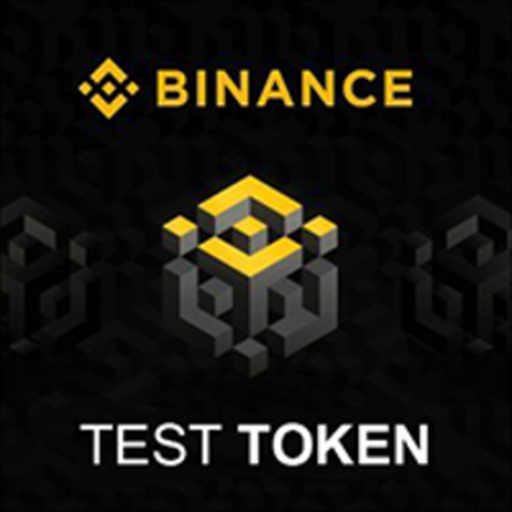Tether vs Test – Price, Market Cap & Performance Compared
Which coin performs better – Tether or Test?
We compare the current price (1 $ vs 0.08017 $), market cap (173 087 463 220 vs 75 699 261) and all-time high (1.32 vs 0.51129).
Find out which one stands out right now!
Tether is currently trading at 1 $, while Test stands at 0.08017 $. These cryptocurrencies differ not only in price but also in market presence.
The market cap of Tether is around 173 087 463 220, and Test has about 75 699 261. Their respective all-time highs are 1.32 for Tether and 0.51129 for Test.
Daily trading volume and the 24h price change (-0.00189 % vs 9.0993 %) also offer key insights.
Compare all metrics now and see which coin fits your investment strategy best!
Tether
Tether is a widely-used stablecoin in the cryptocurrency market, designed to maintain a value equivalent to a traditional currency like the US dollar. It provides traders and investors with a stable asset to navigate the volatile crypto landscape, offering a flexible means to move funds quickly between exchanges. Despite its popularity, Tether has faced scrutiny regarding its reserve holdings and transparency, sparking ongoing debates within the financial community.
more informationTest
The Test coin is gaining attention for its innovative approach to scalability and transaction processing. Its underlying technology aims to enhance user experience while maintaining a high level of security. As the community continues to grow, insights into its potential future applications are becoming increasingly significant for investors and enthusiasts alike.
more information

|

|
|
|
|
General Information |
|
|---|---|
|
Title
Tether
|
Title
Test
|
|
Symbol
usdt
|
Symbol
tst
|
|
Whitepaper
|
Whitepaper
-
|
|
Website
|
Website
-
|
|
Community
-
|
Community
-
|
|
Last Updated
2025-09-24 23:29
|
Last Updated
2025-04-12 10:29
|
Price Data |
|
|---|---|
|
Current Price $
1 $
|
Current Price $
0.08017 $
|
|
High 24h
1 $
|
High 24h
0.08177 $
|
|
Low 24h
1 $
|
Low 24h
0.07131 $
|
|
Price Change 24h
-0.00002 $
|
Price Change 24h
0.00669 $
|
|
Price Change % 24h
-0.00189 %
|
Price Change % 24h
9.0993 %
|
Market Data |
|
|---|---|
|
Market Cap
173 087 463 220
|
Market Cap
75 699 261
|
|
Total Volume
95 616 120 249
|
Total Volume
44 360 601
|
|
Market Cap Change 24h
288 328 065
|
Market Cap Change 24h
6 060 076
|
|
Market Cap Change % 24h
0.16686 %
|
Market Cap Change % 24h
8.70211 %
|
|
Return on Investment (ROI)
-
|
Return on Investment (ROI)
-
|
Supply and Availability |
|
|---|---|
|
Circulating Supply
173 039 417 063
|
Circulating Supply
947 753 156
|
|
Total Supply
173 039 417 063
|
Total Supply
947 753 156
|
|
Max Supply
-
|
Max Supply
1 000 000 000
|
Historical Data |
|
|---|---|
|
All Time High (ATH)
1.32
|
All Time High (ATH)
0.51129
|
|
ATH Change %
-24.39867 %
|
ATH Change %
-84.38484 %
|
|
ATH Date
2018-07-24 00:00
|
ATH Date
2025-02-09 09:09
|
|
All Time Low (ATL)
0.57252
|
All Time Low (ATL)
0.02607
|
|
ATL Change %
74.71457 %
|
ATL Change %
206.28506 %
|
|
ATL Date
2015-03-02 00:00
|
ATL Date
2025-02-08 07:06
|
Tether
Understanding Tether: A Stablecoin Powerhouse
Tether (USDT) is a leading name in the world of stablecoins, a class of cryptocurrency designed to facilitate transactions by maintaining a stable value. Unlike volatile cryptocurrencies like Bitcoin or Ethereum, stablecoins like Tether aim to provide users with the stability of fiat currency, while still leveraging the benefits of blockchain technology.
The Mechanism Behind Tether's Stability
Tether achieves its stability by pegging its value to traditional fiat currencies, primarily the U.S. Dollar. Each Tether token is reportedly backed by an equivalent amount of fiat currency held in reserve. This 1:1 backing mechanism is key to maintaining the coin's stable value, as reflected in its market price which typically hovers around 1 USD.
Historical Development and Milestones
Tether's inception dates back to 2014, and since then, it has played a pivotal role in demonstrating the practical use case of stablecoins within the crypto ecosystem. Its journey has seen significant milestones, including reaching its all-time high of $1.32 in July 2018, and experiencing its low at $0.572521 in March 2015. These deviations, while noteworthy, are rare occurrences in Tether's overall history, underscoring its primary objective of price stability.
Advantages of Using Tether
The primary advantage of Tether is its stability, making it a safe harbor for investors during times of high volatility in the broader cryptocurrency market. By offering price predictability, it facilitates more efficient trading, lending, and arbitrage, making it an indispensable tool for crypto exchanges and users alike. Moreover, Tether's utility is further enhanced by its widespread acceptance and high liquidity.
Challenges and Controversies
Despite its widespread use, Tether has faced scrutiny regarding its claims of full fiat backing. Critics have raised concerns about transparency, regulatory challenges, and the adequacy of its audited reserves. These issues have occasionally prompted regulatory attention and calls for greater transparency and accountability from Tether’s management.
Future Outlook for Tether
The future of Tether rests heavily on its ability to maintain trust and transparency with users and regulators alike. As the crypto market matures, Tether is expected to continue playing a significant role, particularly if it can navigate the evolving regulatory landscape successfully. Its position as a stablecoin market leader suggests that it will remain a cornerstone in crypto trading, offering a reliable alternative to more volatile assets.
In conclusion, Tether stands out as a critical tool within the cryptocurrency space, providing much-needed stability for traders and businesses. Its ongoing relevance will depend on its adaptability to regulatory demands and its continued assurance of transparency and full reserve backing to its user base.
Test
Introduction to Test Coin (TST)
The world of cryptocurrencies is vast and constantly evolving, with new tokens emerging regularly. One such token is Test Coin (TST), which has recently garnered attention due to its price fluctuations and overall market performance. In this article, we will explore the key features of Test Coin, analyze its advantages and disadvantages, and discuss its historical performance alongside future prospects.
Current Overview
As of the latest evaluation, Test Coin is trading at approximately $0.224276. Over the past 24 hours, it experienced significant movement, reaching a high of $0.511293 and a low of $0.107865. This displays a remarkable price change of 64.34%, indicating high volatility—a common trait in the cryptocurrency market.
Test Coin boasts a market capitalization of roughly $213 million, with a total circulating supply of about 951 million TST tokens. The token also has a maximum supply of 1 billion coins, which hints at a level of scarcity that could influence its value in the future. For additional information, interested users can visit the official website: testtoken.vip.
Historical Performance
Understanding the historical performance of Test Coin provides insight into its potential trajectory. The coin reached its all-time high (ATH) of $0.511293 on February 9, 2025. However, since that peak, it has seen a decline of approximately 56.61%. On the other hand, Test Coin has also demonstrated strong growth from its all-time low (ATL) of $0.026067, reflecting an impressive increase of 751.02% within just a short timeframe.
Advantages of Test Coin
One of the most significant advantages of Test Coin is its high volatility, which can be attractive to day traders and investors looking to capitalize on price swings. The substantial changes in price within a 24-hour period indicate that there are opportunities for gains if one is able to predict the market's direction accurately.
Furthermore, the relatively low market cap compared to established cryptocurrencies suggests that Test Coin may have a room for growth, attracting speculators looking for potentially undervalued assets. The coin's low circulating supply relative to its maximum supply can also be a positive indicator for scarcity-driven value appreciation over time.
Disadvantages of Test Coin
On the flip side, Test Coin's volatility can also serve as a double-edged sword. While it presents opportunities for significant profit, it equally poses a risk for steep losses. Investors may find it challenging to assess the right moment for entry and exit due to rapid price fluctuations.
Moreover, as a relatively newer token in the market, Test Coin may face challenges in achieving widespread adoption. Market competition is fierce, with numerous cryptocurrencies vying for attention. This saturation could hinder Test Coin’s growth and lead to price instability if it cannot distinguish itself from its competitors.
Future Outlook
The future prospects of Test Coin largely depend on several factors, including market trends, investor sentiment, and broader economic conditions. Should the coin gain traction and enhance its visibility, there is potential for further price appreciation.
In addition, continuous development and updates from the team behind Test Coin can boost confidence among current and prospective investors. Market dynamics are ever-changing, and emerging technologies or strategic partnerships could pave the way for its success in the competitive cryptocurrency arena.
Conclusion
In summary, Test Coin (TST) is an intriguing asset within the cryptocurrency market characterized by notable price volatility and historical growth. While its advantages may draw in traders and investors, the associated risks must be carefully considered. Keeping an eye on the coin's future developments and market conditions will be vital for anyone interested in participating in this speculative environment.

